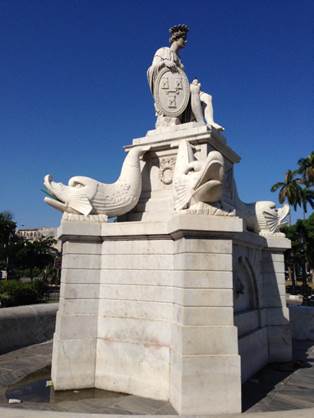
Rebeca Monzo, 13 May 2019 — As its 500th anniversary approaches, the City of St. Christopher of Havana has been named a “wonder city.”*
Unfortunately, to date, very few reconstruction projects are being carried out to mark the anniversary. Over the past sixty years the city has not been adequately maintained or cleaned. As a result, many architecturally significant buildings have been lost while others are in a total state of decrepitude.
Waste and refuse continue to pile up in every neighborhood of the city despite the fact that Japan recently donated a hundred garbage trucks to Cuba. So far, more than twenty of them have been received, with the rest scheduled to arrive sometime this year. But they are barely visible because, apparently, they have been idled and garbage collection has been paralyzed due to the gasoline shortage.
To make matters worse, though thousands of streets and sidewalks are in a state of complete disrepair, very few have been fixed. Bulbs in public street lamps have been replaced with LEDs but the installation was not done properly. Instead of burying the wires underground, as was done on major thoroughfares such as Linea Street and Avenue 26 in Nuevo Vedado, they have been left exposed like clothes lines. They hang from post to post, or from socket to socket, on poles that been left leaning or that are in poor condition.
Another sensitive issue at the moment is the scarcity of basic foodstuffs as well as the high prices charged for them. People are forced to wait in incessantly long lines for food and cleaning products to arrive.
How is it then possible for official media outlets (print and digital, radio and television) to talk about and promote a grand celebration of the 500th anniversary of a city where the population is so adversely affected.
Concerts, culture clubs, musical events and other activities are planned to celebrate, with song and stridency, an anniversary that has not brought people cleanliness, order, solvency or economic stability.
Author’s addendum: In Havana there are 169 impoverished neighborhoods, more than 1,000 barracks and tenements and 696 buildings in critical condition.
*Translator’s note: The designation was awarded by the Swiss-based New7Wonders Foundation
